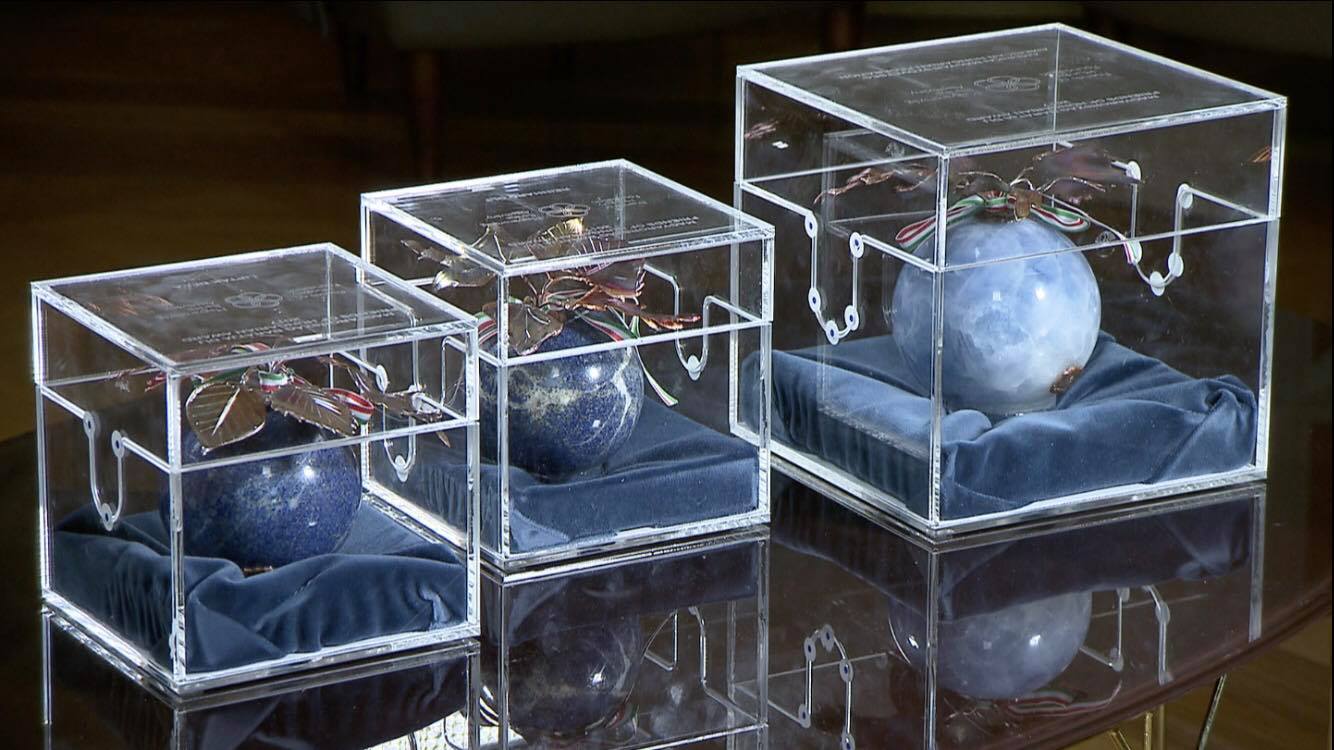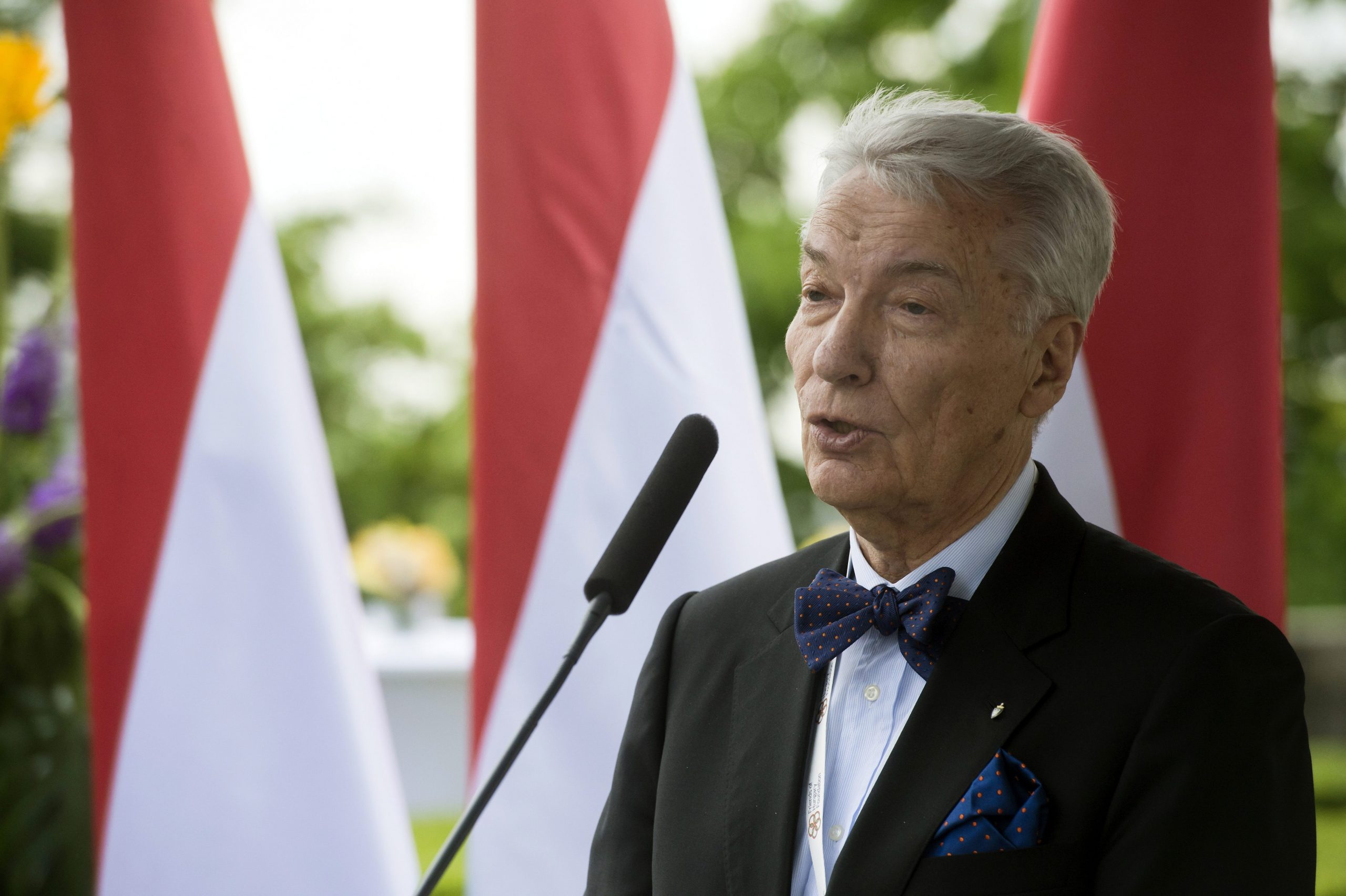
They have invested significant effort into improving Hungary’s international image, and strengthening Hungarian diaspora communities.Continue reading

“We can be proud of the fact that there are people who keep the Hungarian language and culture alive outside of the country’s borders,” emphasized Professor E. Sylvester Vizi, chair of the Friends of Hungary Foundation’s board of trustees, at the birthday party of the Vienna “Europa Club.” The association, which operates in Austria, was founded by Hungarian emigrants who fled abroad after the suppression of the 1956 revolution, for fear of reprisals from the socialist regime. András Smuk, president of the club, said it was important to pass on the Hungarian language and culture and called the “refill” extremely important.
This article was originally posted on our sister-site, Ungarn Heute.
“We can be proud that the Hungarian king, Saint Stephen, founded Christian Hungary and that we are one of the few countries in Europe that can look back on more than 1000 years of statehood,” began E. Sylvester Vizi’s speech, adding that everyone attending the celebration “can be happy that the club’s members from three countries (Hungary, Austria, and Slovakia) can come together during the pandemic.” The club celebrated its 55th birthday two years ago, and the celebrations had to be canceled twice due to the coronavirus pandemic. This year the members were able to meet each other between the imposing walls of Castle Petronell, not far from Vienna.
In his speech, Vizi, who is also the former president of the Hungarian Academy of Sciences, emphasized that there are few nations like Hungary that can boast so many outstanding achievements in sports, culture, and science, and that “all Hungarians in the world can be proud of this.”
The key to success, Vizi said, is that Hungarians who have gone abroad throughout history have adapted to their host countries and respected their laws. The professor also spoke about the Friends of Hungary Foundation, which was established ten years ago by renowned scientists, artists, and public figures. They include opera singer Éva Marton, journalist András Oplatka, professor Sir George Radda, and economist Sándor Lámfalussy, also known as the “father of the euro.” The organization was established to ensure that the achievements of Hungarians are recognized and appreciated worldwide. Every year, hundreds of foundation members travel home from nearly five parts of the world to celebrate unity, Vizi said.
The president referred to the Hungarian Order of Saint Stephen, which he received from President János Áder on August 20th, the day the state was founded, and said that the reason for this award was also that “we are here now to keep the nation, our language, and culture alive.”
“Love for the homeland does not depend on where you live,” said Vizi, stressing that Hungarians should always “say what they think.”
“There is here, in the center of Europe, a nation that wants to be the herald of law and justice,” concluded the professor.
András Smuk, president of the Europa Club, described the regime change as a decisive moment in the life of the organization, which enabled it to open up to the entire Hungarian community in the Carpathian Basin. Today, many cultural moments in Felvidék (in today’s Slovakia), in Kárpátalja (Zakarpattia Oblast in Ukraine), in Vajdaság (Vojvodina in Serbia), as well as in Transylvania (Romania) can be traced back to it.
The organization also publishes books, the proceeds of which benefit Hungarian orphans in Transylvania.
Izabella Jégh, President of the City Council Pozsony (Bratislava) CSEMADOK, emphasized that Hungarians living abroad remained in their homeland after Trianon, but still have to live in another state and that there is great value in the fact that they were able to preserve their Hungarian identity beyond the borders.
On the occasion of the club’s birthday, the International Danube Philharmonic Orchestra gave a wonderful concert.
In the featured photo illustration: Professor E. Sylvester Vizi. Photo by Szilárd Koszticsák/MTI